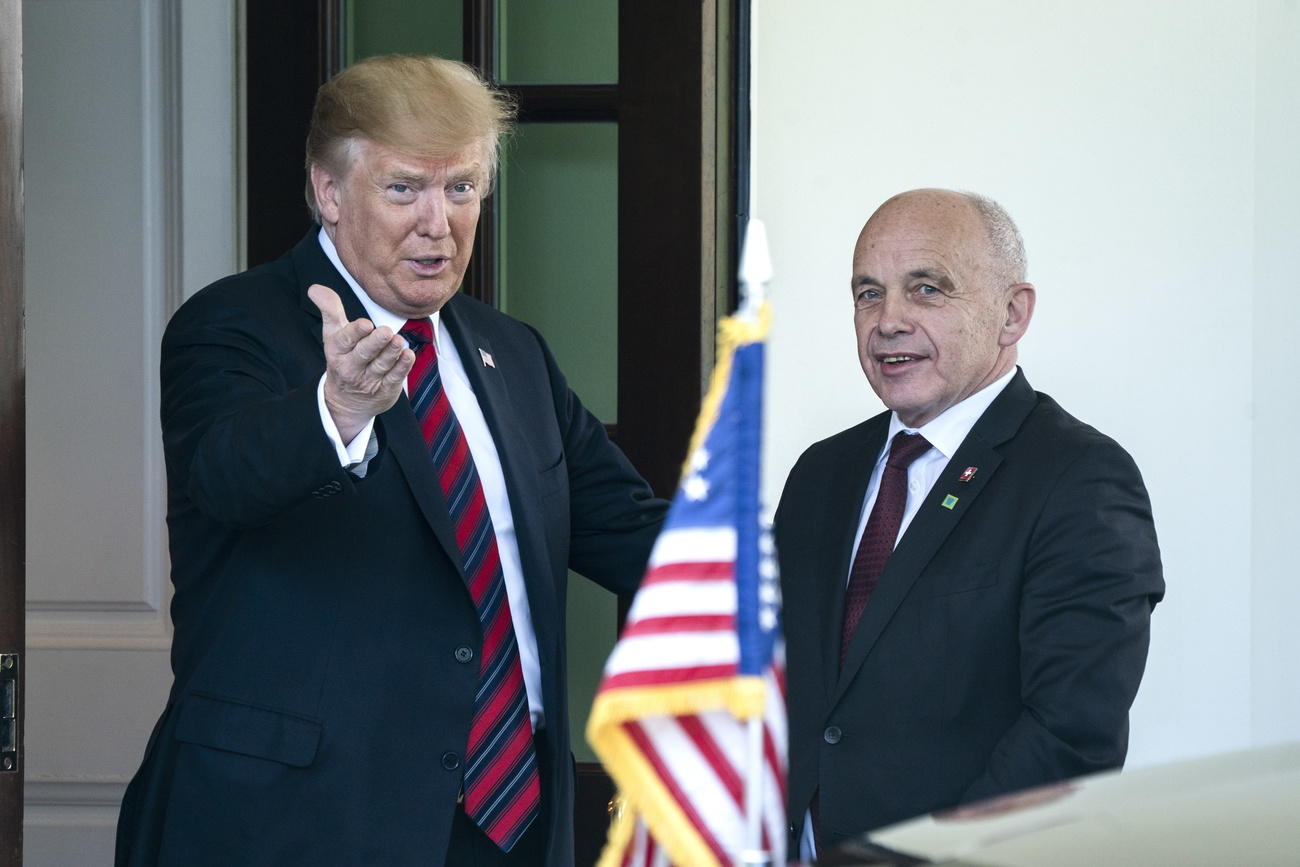
Oval Office meeting shows Swiss potential amid US-Iran tensions
Swiss President Ueli Maurer’s meeting with US President Donald Trump was a unique bilateral event at a moment of increasing tensions between the United States and Iran. While it’s not clear what exactly was discussed in the Oval Office, the press has focused on the role Switzerland could play in avoiding a highly politicised US-Iranian confrontation.
If the exact nature of the meeting between Maurer and Trump remains unclear, there is also no clear position on the American side regarding Iran. Since the beginning of May, the United States has pinpointed increasing Iranian aggression in the Persian Gulf including aid to militant groups and certain proxy forces in the region. Photographs claim to show Iranian missiles being loaded onto small boats in the Gulf by paramilitary forces. There have even been indications that Iran is preparing to attack American troops and interests. In response, the State Department ordered a partial evacuation of the US Embassy in Baghdad. An aircraft carrier, long-range bombers and other military hardware have been sent to the region.
+ Why did the Swiss president go to Washington?
National Security Advisor John Bolton, who is a strong supporter of regime change in Iran as well as Venezuela, was in the Oval Office meeting with Maurer and Trump. Bolton and Secretary of State Mike Pompeo are leading advocates of the increased Iranian aggression and are calling for a strong American response, with the possibility of sending 120,000 troops to the region.
On the other hand, members of Congress, European leaders, Iraqis and some members of the Trump administration are reluctant to label Iran as the aggressor. After all, it was the United States that pulled out of the Iranian nuclear deal and continues to impose rigid sanctions.

Tonkin-like tension?
The debate over photographs of missiles being loaded on boats recalls the infamous 1964 Gulf of Tonkin incident when the US government maintained that the USS Maddox had been attacked by North Vietnamese forces. The official report outlining what happened remains controversial, with significant indications that the “incident” was falsely presented to justify increased US involvement in the Vietnam War.
Why would Donald Trump create tension with Iran? The movie “Wag the Dog” presents a scenario where a war is fabricated to distract voters’ attention from a presidential sex scandal. And, if the United States were to be involved in a violent conflict with Iran, it could help President Trump’s re-election chances. History has shown that in times of crisis, voters tend to elect the incumbent candidate for the sake of stability.
Swiss expertise
Whatever the reason for the Maurer-Trump meeting, Switzerland’s image as an important neutral country which offers its “good offices” tradition has been enhanced (although the Swiss and the Oval Office meeting were barely mentioned in the American press, which focused mostly on tensions within the US government).
Switzerland has a real opportunity to help defuse the US-Iranian situation, having represented American interests in Iran since the hostage crisis of 1979. It is important to remember the outstanding role of Swiss Ambassador Erik Lang and his colleagues in helping the liberation of 52 American diplomats and citizens after 444 days of detention.
There are significant differences between Switzerland’s specific role in dealing with the 1979 hostage crisis and this larger, more complex confrontation. And one can only speculate about why President Maurer and President Trump didn’t have more to say about the meeting. Nevertheless, whatever the outcome, a visit by a Swiss president to the Oval Office is an important event in and of itself.
The views expressed in this article are solely those of the author, and do not necessarily reflect the views of swissinfo.ch.

More
Trump discusses economic relations and ‘good offices’ with Swiss president

In compliance with the JTI standards
More: SWI swissinfo.ch certified by the Journalism Trust Initiative


























You can find an overview of ongoing debates with our journalists here . Please join us!
If you want to start a conversation about a topic raised in this article or want to report factual errors, email us at english@swissinfo.ch.